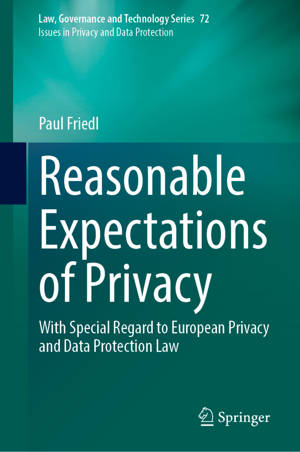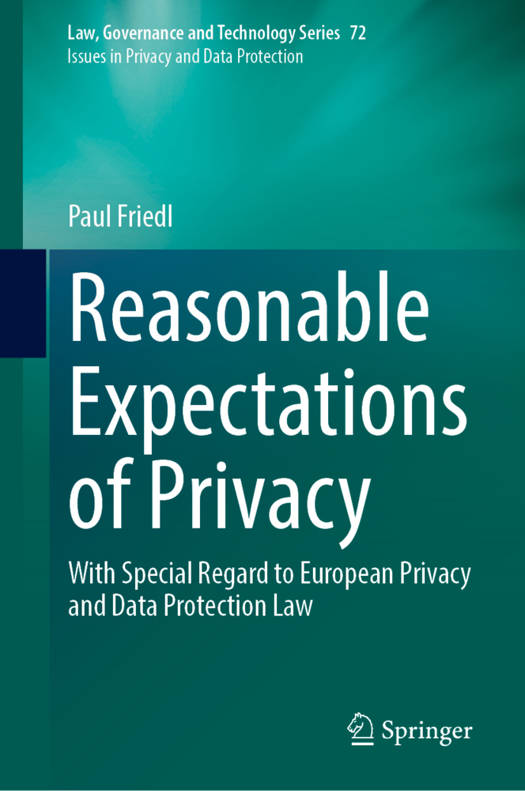
- Afhalen na 1 uur in een winkel met voorraad
- Gratis thuislevering in België vanaf € 30
- Ruim aanbod met 7 miljoen producten
- Afhalen na 1 uur in een winkel met voorraad
- Gratis thuislevering in België vanaf € 30
- Ruim aanbod met 7 miljoen producten
Reasonable Expectations of Privacy
With Special Regard to European Privacy and Data Protection Law
Paul FriedlOmschrijving
'Reasonable expectations of privacy' have become a cornerstone concept in privacy and data protection legislation worldwide, extending today from US constitutional law to the GDPR, Article 8 ECHR, and various Asian and African data protection frameworks. This book offers a comprehensive analysis of this complex and ambiguous legal concept, addressing the many questions regarding its proper function, interpretation and application. Tracing the notion's evolution from the 1967 Supreme Court ruling in 'Katz v United States' to its status as a widespread paradigm of global privacy discourse, the work illuminates the many fallacies that pervade both academic and judicial interpretations. At its core, the book explores and evaluates four distinct models of 'reasonable expectations,' analysing their normative foundations and practical implications in depth. In doing so, the book also contributes to broader discussions within privacy and data protection theory, as it identifies and evaluates different strategies for regulating privacy conflicts, such as interest balancing or social norms-based regulation. Finally, the book also makes significant contributions to the scholarship on the EU General Data Protection Regulation (GDPR) and Article 8 ECHR, evaluating how 'reasonable expectations' operate within these contexts from empiric and normative perspectives.
Specificaties
Betrokkenen
- Auteur(s):
- Uitgeverij:
Inhoud
- Aantal bladzijden:
- 377
- Taal:
- Engels
- Reeks:
- Reeksnummer:
- nr. 72
Eigenschappen
- Productcode (EAN):
- 9783031848803
- Verschijningsdatum:
- 6/03/2025
- Uitvoering:
- Hardcover
- Formaat:
- Genaaid
- Afmetingen:
- 156 mm x 234 mm
- Gewicht:
- 721 g

Alleen bij Standaard Boekhandel
Beoordelingen
We publiceren alleen reviews die voldoen aan de voorwaarden voor reviews. Bekijk onze voorwaarden voor reviews.











